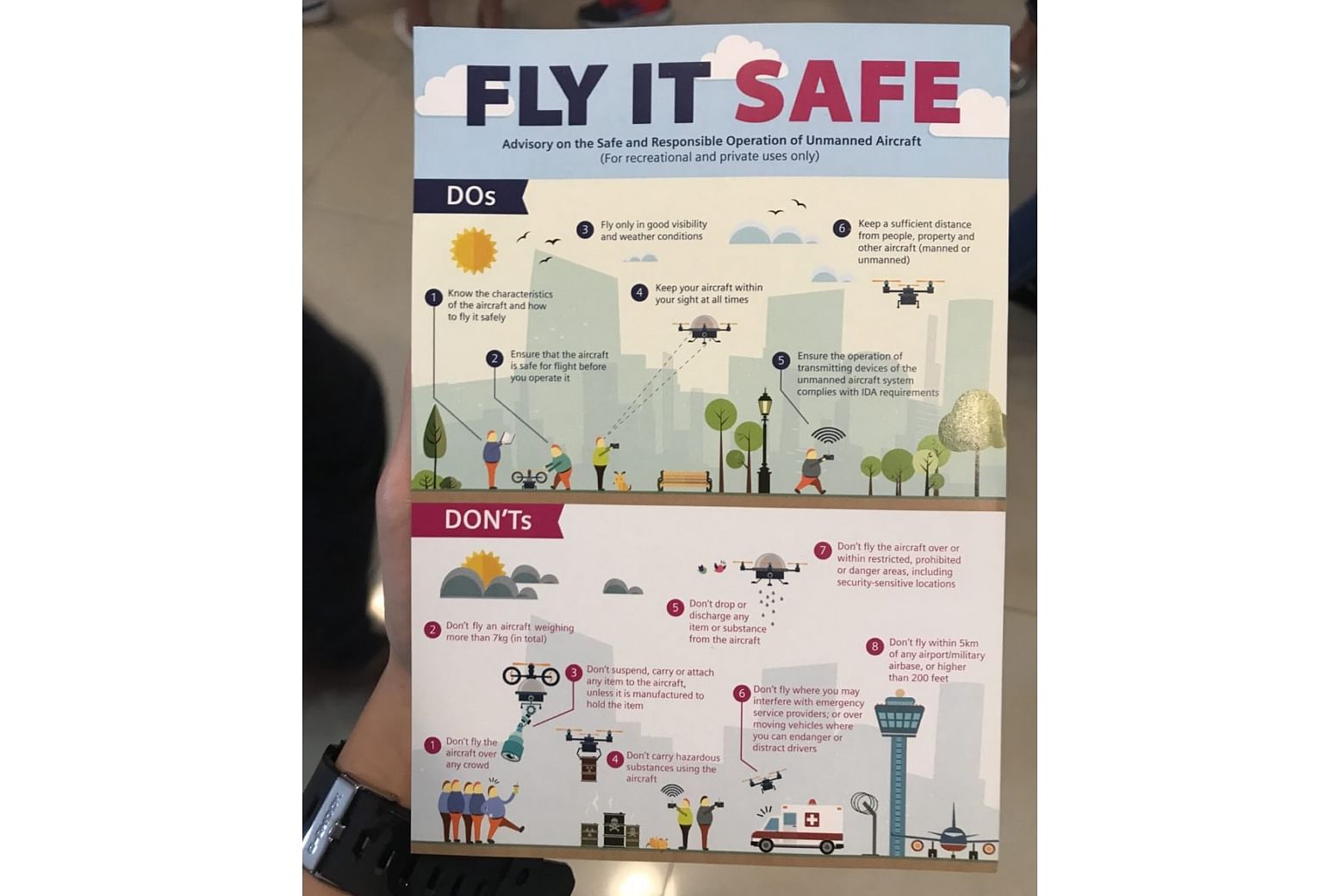Plan to beef up laws governing drone use in Singapore to ensure public safety
Sign up now: Get ST's newsletters delivered to your inbox
Follow topic:
SINGAPORE - As more drones and unmanned aircraft take to the skies here, the Civil Aviation Authority of Singapore (CAAS) is proposing enhancements to the laws governing their use in a bid to ensure public safety.
Five changes are being proposed to the existing unmanned aircraft regulatory framework, which was established in 2015.
These include the enhancements of operating guidelines for unmanned aircraft; an online training programme which will be compulsory for those flying unmanned aircraft weighing 1.5kg or more; as well as a pilot licensing scheme to ensure that users have a minimum competency level.
There are also plans for the introduction of training organisation framework to support the proposed pilot licensing.
Another proposed change is the implementation of additional requirements for those flying unmanned aircraft weighing more than 25kg.
Heavier unmanned aircraft pose a greater safety risk.
These requirements could include the partial or full certification of the device, as well as the certification of the operator and maintenance organisation.
The CAAS said on Sunday (April 29) that it is seeking public feedback on the proposed amendments.
Currently, the law requires operators of unmanned aircraft to apply for permits from the CAAS, depending on the purpose, weight of the device and where it will be flown.
Mr Kevin Shum, director-general of the CAAS, said that while the rapid growth in unmanned aircraft activities benefits both users and the economy, they may also pose a risk to aviation and public safety, particularly in Singapore's urban environment.
He said: "While we are keen to support the fast-growing unmanned aircraft industry, this always needs to be balanced against the need to maintain high levels of aviation and public safety."
The CAAS said 1,137 activity permits for drones were filed between April 2016 and April last year, up from the 781 filed in the same period between 2015 and 2016.
The public consultation exercise was launched on Sunday at a drone showcase during the first Car-Free Sunday SG event to be held outside the Civic District and Telok Ayer.
The half-day event took place at one-north, and was organised by JTC and the Urban Redevelopment Authority. About 3,000 people attended the event.
Companies and public agencies such as ST Aerospace and the National Parks Board demonstrated the use of drones for tasks such as delivering packages and inspecting trees.
Mr Low Hsien Meng, 30, assistant principal engineer at ST Aerospace, said: "It is in the interest of the drone operators to protect their assets and, at the same time, look out for others."
He added that the proposed enhancements highlight how heavier drones cease to be just toys and can be dangerous to others.
Singapore University of Technology and Design's assistant professor of engineering and product development Foong Shaohui said the proposed amendments, which apply mainly to drones weighing 1.5kg and above, would not affect most recreational users.
He added: "A 1.5kg drone may not seem heavy, but if it falls on someone at high speeds, it could be dangerous. Just as how drivers of cars have to learn how to drive responsibly, it would be good for operators of unmanned aircraft to learn how to fly one responsibly."
Drone hobbyist Claudio Chock, 30, said: "There are many training videos online, but not everyone will watch them unless they're made compulsory. Even then, it is no guarantee that they will put into practice what they learn."
Members of the public can offer their feedback on the proposed amendments until May 31, by visiting the Reach website at www.reach.gov.sg


